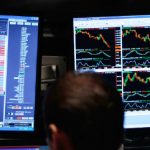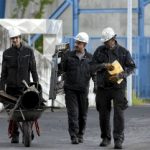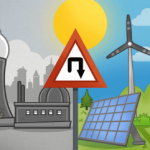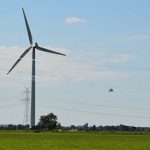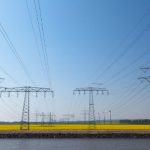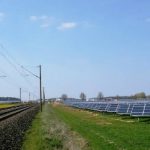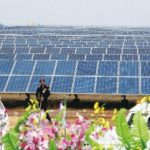In the current policy environment many energy technologies can appear attractive with the right set of assumptions: discounted clean energy technologies (wind, solar and nuclear) where the discount rate is heavily influenced by risk (see graph) and, perhaps surprisingly, new load-following fossil fuel plants (especially natural gas) where continued wind/solar technology forcing actually provides substantial upside potential. CCS researcher Schalk … [Read more...]
Interview Ditlev Engel, CEO DNV GL Energy: “We have to rethink the mechanisms of the electricity market”
DNV GL’s new 2018 Energy Transition Outlook projects a massive investment shift from fossil fuels to renewables and grids – and this is based mainly on cost considerations. Yet, notes Ditlev Engel, CEO of DNV GL Energy, in an interview with Energy Post, this won’t be enough to meet the goals of the Paris Climate Agreement. He says policymakers will have to take additional actions. “Doing just a little more won’t be enough.” (See here for main … [Read more...]
Why are German coal workers so powerful, when there are so few?
With Germany slipping from its position as a climate leader, an industry with just 20,000 jobs is dictating policy to the federal government. How is this possible, asks Felix Heilmann. Courtesy Climate Home News. … [Read more...]
Energiewende enters a new phase – how is it performing?
The Energiewende is proceeding ahead of schedule with high grid reliability, writes researcher Schalk Cloete. However, costs are much higher than originally planned, while CO2emissions are stagnating. According to Cloete, wind/solar market shares have now reached the point where large grid expansion projects become critical. One problem is that the net value of new wind/solar is approaching zero as market value declines and integration costs … [Read more...]
How rapidly can we transition to 100% renewable electricity?
Science tells us that, to avoid devastating climate change, we must rapidly cut greenhouse gas emissions to zero. How fast is possible, asks Mark Diesendorf of the Cooperative Research Centre for Low Carbon at the University of New South Wales (UNSW) in Australia. He believes the sceptics may be wrong. … [Read more...]
Trying to make sense of the RWE/EON utility deal…
There is economic and financial market rationale behind the recent deal between E.ON. and RWE, writes financial energy specialist Gerard Reid. From a strategic perspective, however, the decision will impact customers negatively, and will be bad for the long-term sustainability of both companies, Reid argues. Courtesy Energy and Carbon blog. … [Read more...]
German electricity market in 2017: records for battery storage and redispatch
Renewable energy generation is still on the rise in Germany, though at a much lower pace than in the years around 2010, writes Marius Buchmann of Jacobs University in a detailed overview of the German electricity market in 2017. Costs of the feed-in tariff are stagnating, notes Buchmann, but redispatch costs which grid operators incur to keep the system stable, reached a new record far above €1 billion. Courtesy of Buchmann’s blog Enerquire. … [Read more...]
Shaking up the German energy market: the Eon and RWE deal
The recent deal between German utilities RWE and Eon will lead to a concentration of power in the different segments of the energy market, writes Marius Buchmann of Jacobs University in Bremen. According to Buchmann, the big question is whether the new companies will become innovation engines or will impose new market entry barriers. Article courtesy of Buchmann’s blog Enerquire. … [Read more...]
Germany to set end date for coal power in 2019
Germany’s coalition partners have concluded a treaty that may set a final deadline for coal-fired power production in Germany, Clean Energy Wire reports. A commission will decide the timeline for phasing out coal, under a coalition deal agreed between the social democrats and Angela Merkel’s conservatives. … [Read more...]
Time for German network operators to come clean about tariffs
Network tariffs are an important part of energy costs for consumers, yet, surprisingly, the way these fees are established in Germany is completely opaque, writes Andreas Jahn, Berlin-based Senior Associate at global energy policy advisors Regulatory Assistance Project (RAP). According to Jahn, it is unclear how network operators and the regulator calculate costs and how they are allocated to customers. He calls on the German government—and on … [Read more...]
The German electricity market in 2016: more gas, renewables stable, higher emissions, higher tariffs
Whereas gas-fired power grew strongly in Germany in 2016, the output of renewables declined slightly. CO2 emissions went up, as did network tariffs and consumer prices. Renewables were funded 70% through auctions and just 30% through feed-in tariffs. An overview by Marius Buchmann. … [Read more...]
Should EPH, betting on a coal power future, have its cake and eat it too?
EPH, the Czech energy company that bought Vattenfall’s German lignite assets, has joined a legal action against new pollution limits, writes energy finance consultant Gerard Wynn. Although EPH acquired the plants at a steep discount, and has profited from a sharp rise in wholesale power prices, the company apparently is still not satisfied, notes Wynn. It wants to be able to disregard EU-wide rules that protect people from air pollution and … [Read more...]
German utilities are struggling with digitalization, especially in retail
German utilities claim that they are becoming consumer-centred, service-based organisations, but research from Oliver Wyman shows that in actual fact their market share in the digitalized retail market is very small, writes energy economist Marius Buchmann of Jacobs University in Bremen. But they may still deliver on their promise: they are ready to launch digital attackers. Article courtesy of Buchmann’s blog Enerquire. … [Read more...]
Why solar keeps being underestimated
There are competing ideas on the best technologies to rapidly decarbonise the energy system. Some scenarios emphasise the role of carbon capture and storage to render coal- and gas-fired power plants more climate-friendly. Others point to nuclear energy and a third group is more optimistic on renewable sources. But it’s plausible that even these more optimistic outlooks have greatly underestimated the potential of solar power, writes Dr Felix … [Read more...]
Germany’s first renewables auctions are a success, but new rules are upsetting the market
The introduction of renewables auctions in Germany, replacing administratively set feed-in premiums, has led to considerably lower prices and very high realization rates. However, community participation was very low in the first solar PV auctions. Now a new rule favouring community projects in onshore wind auctions turned out to be so attractive that most bidders created community projects to profit from them. This is turning the market upside … [Read more...]
- 1
- 2
- 3
- …
- 7
- Next Page »


